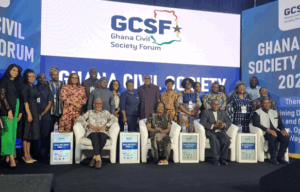
By Kingsley Webora TANKEH
As global funding declines, civil society organisations (CSOs) face an ethical dilemma of either becoming pawns of foreign agendas or harnessing the nation’s culture of generosity to fuel development.
This profound sentiment was captured during his keynote address by Chairman-National Development Planning Commission (NDPC) Dr. Nii Moi Thompson at the Ghana Civil Society Forum in Accra.
“The case for credibility takes on different significance,” he declared. “Local CSOs must prove that they are not conduits or pawns for a sinister global agenda or ideological manipulation and domination,” he stressed.
The event was on the theme ‘Reimagining development financing and civic action – challenges, opportunities and the way forward’.
Speaking at the event, Vice President Naana Jane Opoku Agyemang concurred – citing declining Official Development Assistance (ODA) due to political shifts in donor countries, limited concessional financing, rising public debt and shrinking fiscal space, exacerbated by climate change, conflict and economic shocks.
“The signals are clear,” she asserted. “We cannot rely solely on aid. We are being challenged to think differently, to place citizens at the centre of decision-making on the use of resources.”
Prof. Opoku Agyemang, declared that Ghana and Africa can no longer rely on foreign aid as the primary engine for development.
The vice president outlined a comprehensive national strategy focused on domestic resource mobilisation, citizen empowerment and innovative financing to overcome a perfect storm of global economic pressures.
“Development financing across the Global South is under immense pressure,” she noted.
Reflecting on the event’s theme, she emphasised that: “Reimagining financing means shifting from dependency to ownership”.
To empower civic actors in Ghana, she expressed government’s commitment to passing the Non-Profit bill, reforming regulatory frameworks to facilitate CSO/NGO activities and promoting philanthropy through enhanced tax incentives.
Dissecting the double-edged sword of foreign aid, the president’s senior advisor on Sustainable Development Goals (SDGs) contended that despite the risk of complacency and overdependence, foreign aid could be pivotal to Ghana’s development.
He cited the role of aid in China’s development, stating that: “China received billions from Japan”, which helped it to industrialise – and it has now overtaken the latter to become the world’s second-largest economy.

He indicated that foreign funding is not inherently evil, citing the transformative role of aid in post-war Japan and China’s development – funded significantly by Japan and US foundations like Rockefeller.
“Aid is no substitute for durable local efforts,” he acknowledged, “but evidence shows that no country has been able to develop in the past 100 years without substantial [and prudently used] aid.”
But he stressed that the real threats are “CSOs as conduits for ideological manipulation”, the misuse of aid by givers or recipients and motivations that do not align with local needs.
With declining traditional donor funds, making a pivot toward local resources is “inevitable” he noted – stressing that Ghanaian and African CSOs are at the crossroads and can only exact sovereignty by looking inward for funding.
Ghana’s viable option is to build credible, homegrown philanthropy or risk its sovereignty.
Despite being strapped for aid, Dr. Thompson admonished Ghanaian CSOs not to fall prey to foreign groups pushing extremely “conservative or socially progressive values” that do not align with Ghana’s priorities to erode national sovereignty.
He called for CSOs to be “mindful of the cultural and other contexts [and] be able to say ‘no’ to funding that subverts our cultural values, undermines the country’s sovereignty and distorts development priorities”.
He referenced the impact these agendas – including the “US$2.3billion-funded global transgender movement” – have had on African countries like Kenya, where activist were allegedly diverted from the East African country’s urgent needs like potable water and schools – despite ferocious resistance from the majority of Kenyans.
“This happened despite opposition… against a cultural war that was at variance with their search for basic things,” he stated, adding that these activists have now “suddenly gone quiet as the tide has turned against the movement in its own countries”.
“These external resources must be aligned with the development priorities of our people,” he insisted.
“CSOs must say ‘no’ to funds undermining our sovereignty or cultural values.”
Drawing on historical parallels and contemporary examples, Dr. Thompson argued that declining foreign funding – while challenging – presents an opportunity for CSOs to reclaim autonomy and resist becoming conduits for foreign ideological agendas.
He however pointed out that corruption stands in the way of mobilising domestic funds for CSO activities in Ghana.
“Corruption is 90 percent of Ghana’s problems,” he noted, calling for behavioural change to build public trust.
“The potential for domestic resource mobilisation is there, but CSOs must win trust to navigate an uncertain future.”
He stressed that this requires “discipline and credibility” – with the absolute conviction that donations are used effectively and not to fund the “pampered lifestyles of a privileged few”, urging CSOs to prioritise “modesty, transparency and demonstrable impact”.
“High-net-worth Ghanaians will give,” he asserted, “but only if CSOs justify every cedi,” he added.
He urged Ghanaian CSOs to build credibility, demonstrate impact and foster collaboration to avoid duplication and waste.
To further buttress his point, he highlighted the inherent generosity of Ghanaians: citing Ghanaian peacekeepers in Rwanda who sourced clothing and donations from Ghanaian churches for refugees – a contribution enshrined in Kigali’s Genocide Museum but ignored globally.
And a local businessman who funded a 12-unit housing complex for Liberian refugees at Budumburam, including an elderly woman who had lost her entire family.
“This isn’t charity with tax benefits like in the West,” he emphasised. “Ghanaians give literally – with no hidden incentives. But they demand credibility.”
The post NDPC Chairman urges CSOs to look inward for funding appeared first on The Business & Financial Times.
Read Full Story
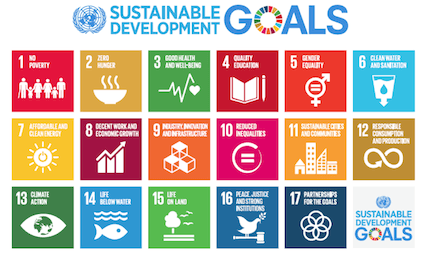
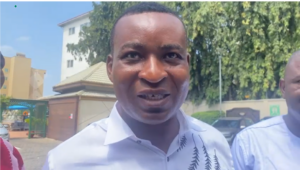


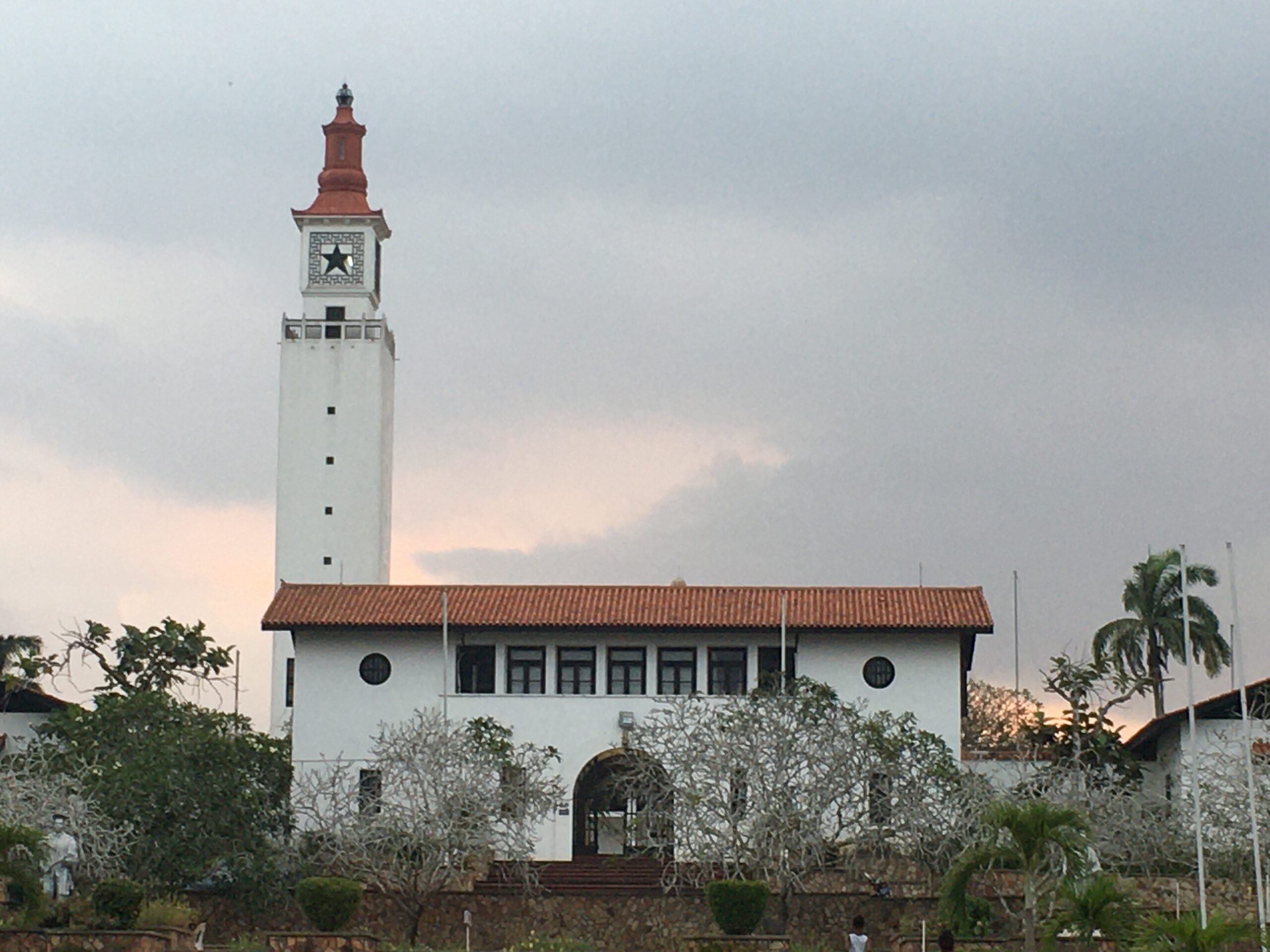
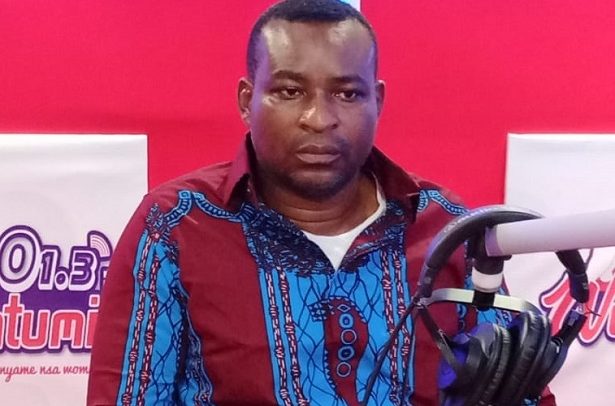

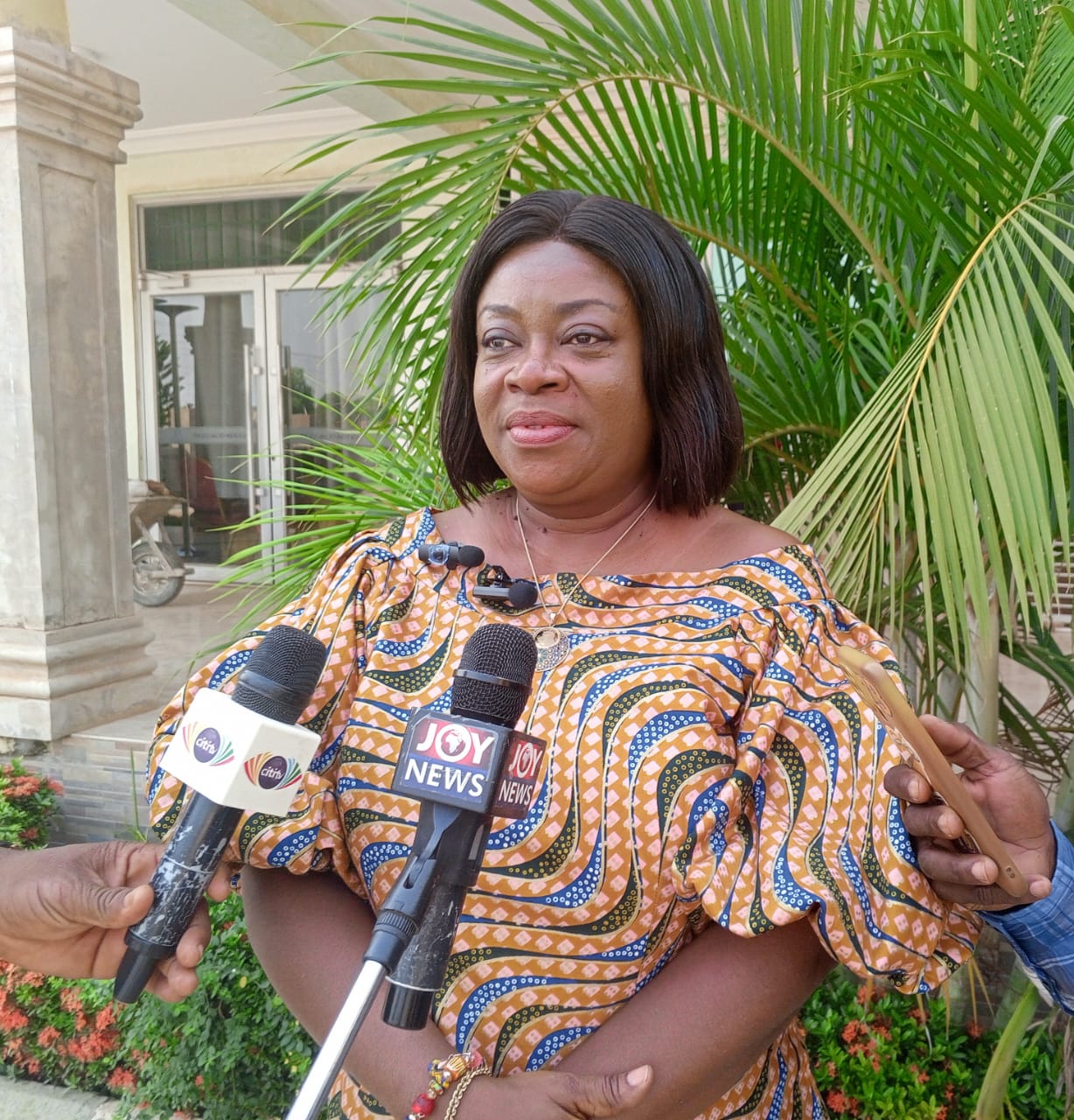














Facebook
Twitter
Pinterest
Instagram
Google+
YouTube
LinkedIn
RSS